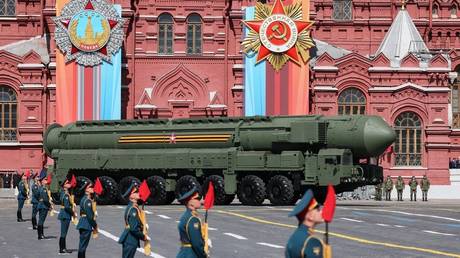July 4th, 2018: Should We Be Celebrating Independence, Or Fighting For It?
by Richard Enos, Collective Evolution:

- The Facts:The history of America can be seen as a testimonial of a slow and steady degradation of human liberty and self-determination.
- Reflect On:Do the words and ideas of the founding fathers give you an idea about our natural right to freedom and self-determination? What would happen in America if a majority of people has an awareness of what we are naturally entitled to as human beings?
July 4th celebrations in America in recent years have been tinged by the suspicions of a growing number of citizens that their independence has long been revoked.
Independence means more than having one’s own government on native soil and no longer being considered a ‘colony’ of another power; it also means that one’s own government is in full subservience to the will and the liberty of its people.
It is with such convictions that writings such as Thomas Paine’s pamphlet Common Sense became widely considered to have been influential in the decision on the part of American colonists to declare their independence from Britain.
Condemnation of The English Constitution
In his pamphlet, Paine characterizes government as a necessary evil, not a boon or device for human liberty in any iteration. Governments arise by necessity when a population gets to a certain size wherein rule by the collective becomes too unwieldy.
The implementation of government by a people, which was the task ahead of American colonists who sought independence, were informed by analyses of the form of government that Americans had suffered under, namely the English Constitutional Monarchy. Paine’s brief comments on it begin to reveal its shortcomings:
I know it is difficult to get over local or long standing prejudices, yet if we will suffer ourselves to examine the component parts of the English constitution, we shall find them to be the base remains of two ancient tyrannies, compounded with some new republican materials.
First.—The remains of monarchical tyranny in the person of the king.
Secondly.—The remains of aristocratical tyranny in the persons of the peers.
Thirdly.—The new republican materials, in the persons of the commons, on whose virtue depends the freedom of England.
The two first, by being hereditary, are independent of the people; wherefore in a constitutional sense they contribute nothing towards the freedom of the state.
To say that the constitution of England is a union of three powers reciprocally checking each other, is farcical, either the words have no meaning, or they are flat contradictions.
To say that the commons is a check upon the king, presupposes two things:
First.—That the king is not to be trusted without being looked after, or in other words, that a thirst for absolute power is the natural disease of monarchy.
Secondly.—That the commons, by being appointed for that purpose, are either wiser or more worthy of confidence than the crown.
But as the same constitution which gives the commons a power to check the king by withholding the supplies, gives afterwards the king a power to check the commons, by empowering him to reject their other bills; it again supposes that the king is wiser than those whom it has already supposed to be wiser than him. A mere absurdity!
There is something exceedingly ridiculous in the composition of monarchy; it first excludes a man from the means of information, yet empowers him to act in cases where the highest judgment is required. The state of a king shuts him from the world, yet the business of a king requires him to know it thoroughly; wherefore the different parts, by unnaturally opposing and destroying each other, prove the whole character to be absurd and useless.
Some writers have explained the English constitution thus; the king, say they, is one, the people another; the peers are an house in behalf of the king; the commons in behalf of the people; but this hath all the distinctions of a house divided against itself.
What we see here, and this is common to just about every government in the world, is that those who have power (in this case, the monarchy) wish to retain their power, but under severe pressure from awakening people, are forced to accede some of the power to a branch of government that purportedly represents the people (i.e. the House of Commons).
In actual fact, the way the structure plays out almost always allows the powerful to maintain power, mainly through the deception that the people (here the commons) actually have a say in important matters. It’s really a big show, whereby small loopholes and backdoors always exist or are surreptitiously created to allow the powerful (the King and the Aristocracy, in this case) to maintain the ability to eventually get exactly what they want in all but the most trivial matters.
Read More @ Collective-Evolution.com



